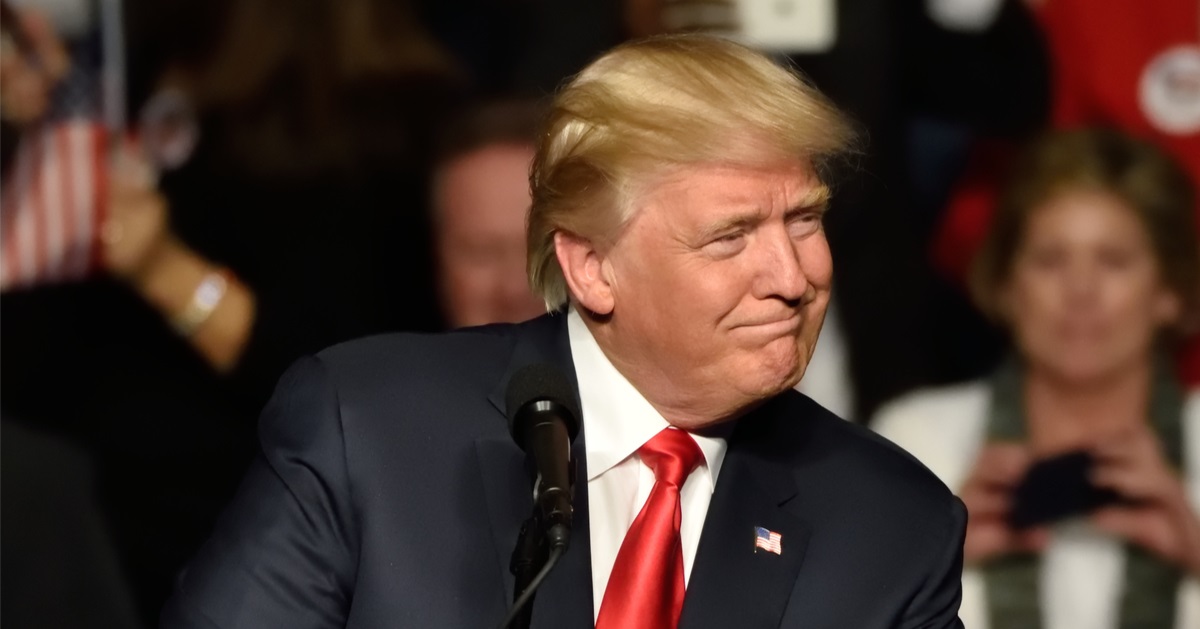DANIEL VAUGHAN: I'm Still Thankful For Overthrowing British Tyranny - That Has Returned
As we head into America's 250th anniversary, it's worth noting that we have the same things to be thankful for this year as the founding generation did. They threw off British tyranny, and we can be grateful that we're not under the same British tyranny today. I say that because the United Kingdom has fallen, and no longer represents anything resembling the West.
We could sit here for days and name the reasons this is the case, but this week, the reason is one named in the Declaration of Independence. Included in the many grievances against the British crown is this one, listed by the Founders: "For depriving us in many cases, of the benefits of Trial by Jury."
You and I take this for granted because the right to jury trial is preserved in various ways in the Fifth, Sixth, and Seventh Amendments to the U.S. Constitution. At every step in the legal process, the Founders were specific in ensuring American citizens maintained the right to a jury trial, and that it be "speed and public."
Were we still under the British crown, we'd have the same complaint today.
The BBC reports that the United Kingdom's justice secretary is seeking to do away with jury trials, "except in most serious cases."
How do they define serious? "Justice Secretary David Lammy is proposing to massively restrict the ancient right to a jury trial by only guaranteeing it for defendants facing rape, murder, manslaughter or other cases passing a public interest test."
The plan from Lammy aims to decrease the court case load and run over ancient rights in the process. The BBC adds:
The plans, obtained by BBC News, show that Lammy, who is also deputy prime minister, wants to ask Parliament to end jury trials for defendants who would be jailed for up to five years.
The MoJ presentation, produced earlier this month, says Crown Courts are facing record backlogs with more than 78,000 cases waiting to be completed. In practice, this means that suspects being charged with serious crimes today may not have a trial until late 2029 or early 2030.
Officials predict in the document that the caseload will grow to more than 100,000 before then, unless there is further action.
In short, the government of the United Kingdom is prioritizing cost savings and caseloads over the rights of its citizens. Put in those terms, this is nothing more than an abomination.
Charles C. W. Cooke, a former U.K. citizen, writes in National Review that this story is an example of many "rights" falling by the wayside in Britain. "And it's not just juries. Once upon a time in Britain there was also an "ancient right" to free speech, an "ancient right" to bear arms, and an "ancient right" not to be detained indefinitely without trial. Now, those are all memories. Something bad happened — a "hate crime," a mass shooting, a terrorist attack — and they were jettisoned at the first opportunity."
Jury trials are just the latest rights getting wrecked in the United Kingdom. We've all seen the stories of people getting arrested for tweets and social media posts. The country moved on from gun violence to knife violence. The country that stood against authoritarianism on the European continent for generations has now fallen under the boot heels of bureaucratic nightmares.
These news stories are shocking to us, but the Founding generation would recognize them. The United Kingdom has a long history of ignoring people's rights when it is convenient.
In the decade before the Revolution, Britain repeatedly stripped Americans of a right they believed they held as English subjects. Beginning with the Sugar Act of 1764 and the Stamp Act of 1765, Parliament shifted key customs and revenue cases out of colonial courts and into vice-admiralty courts, where no juries sat. A single Crown-appointed judge decided guilt, penalties, and forfeitures.
The 1768 Vice Admiralty Court Act expanded these jury-less tribunals across the colonies, and some cases were even sent to faraway courts in Halifax or London—what the Declaration denounced as being "transported beyond Seas" for trial. To colonists, these moves weren't administrative tweaks; they looked like an intentional strategy to bypass sympathetic local juries and guarantee convictions.
Americans saw this shift as a direct assault on the English constitutional tradition they thought protected them. Jury trials were a core feature of common-law liberty, and removing politically sensitive cases from juries signaled to colonists that Parliament did not trust them with the basic duties of self-government.
By the early 1770s, the pattern was unmistakable: Britain kept jury trials in appearance, but carved out the most consequential cases and relocated them to royal courts specifically designed to avoid juries. The founders remembered this well; it's why the Declaration lists the grievance plainly, and why the Constitution later cemented jury protections in both criminal and civil cases.
History doesn't repeat, but it often rhymes. The United Kingdom is writing a new song now, where it's no longer a free society that has any rational place in the anglosphere once envisioned by Winston Churchill. The sun has set on Britain. I hope she wakes up one day, but I have resigned myself to the reality that America now stands alone in the fight for freedom and liberty.
Two hundred fifty years later, I'm thankful for the same things the American Founders were grateful for leaving behind. America truly is beautiful.




